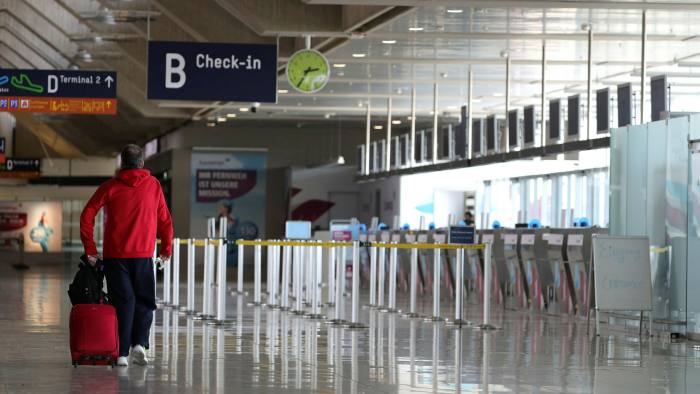ACI EUROPE (Airports Council International) and the International Air Transport Association (IATA) urged European Governments to lift all travel restrictions for fully vaccinated/recovered individuals holding a valid Covid Certificate – as advised by the new regime for travel within the EU which comes into force today.
This new regime, set out by an EU Council Recommendation adopted on January 25, is based on the health status of travelers, rather than the epidemiological situation of their country or area of origin.
Independent research conducted in Finland and Italy provides insight into developing a Europe-wide policy for removing restrictions. The research confirms the validity of the traveler-centric approach, highlighting the inefficiency of recent travel restrictions imposed by European countries in mitigating the risks to public health and society posed by COVID-19.
New analysis produced by Oxera and Edge Health reveals that pre-departure testing requirements are likely to be ineffective at stopping or even limiting the spread of the Omicron variant. The analysis of testing restrictions imposed by Italy and Finland on December 16 and December 28, 2021 respectively on all incoming travelers made no distinguishable difference to transmission of Omicron cases in those countries.
Conversely, the impact of these restrictions, and in particular the limitations to the free movement of people, resulted in significant and unnecessary economic hardship – not just for the travel and tourism sectors and their workforce, but for the whole European economy.
Crucially, the report also shows that:
– Maintaining pre-departure testing requirements for vaccinated/recovered travelers further will have no impact whatsoever on the future spread of the Omicron variant in Italy and Finland.
– Imposing these restrictions earlier – i.e. on the very day the Omicron variant was identified as an issue by the WHO – would not have stopped its spread nor significantly limited it in Italy and Finland. This is inherent to the fact that variants circulate well ahead of the time by which they are identified, which is the reason why both the WHO and ECDC generally consider travel restrictions to be ineffective.
The fact that both countries are now lifting their pre-departure testing requirements is very welcome. However, concerns remain that:
– Both countries could have lifted them much earlier or altogether avoided imposing them in the first place – lessons must be learned to avoid repeated economic damage with no attendant public health benefit.
– While Finland has lifted restrictions for all incoming vaccinated/recovered travelers, Italy has done so only for incoming travelers from within the EU/EEA. This now needs to extend to all incoming travelers, as there is no health safety benefit in delaying this step any longer.
With the coming into force today of the new regime for intra-EU/EEA travel, and in light of the robust data now made public, ACI EUROPE and IATA urge those countries which continue to deviate from the common EU framework to rapidly align with it. Specifically, we call upon the Governments of Austria, Cyprus, the Czech Republic, Lithuania and Malta to address this issue as a matter of urgency and abandon unnecessary and damaging restrictions.
In addition, there are no compelling reasons why vaccinated/recovered travelers should be subjected to a different regime whether they travel within the EU/EEA or come from other countries. It is now urgent that the EU Council aligns its outdated Recommendation for travel into the EU (from third countries) with the new regime for intra-EU/EEA travel that is now in force.
“The new regime for intra-EU/EEA travel is right to focus on a ‘person-based approach’ and to recognize that both vaccinated and recovered travelers should not be subjected to any restriction. But having common EU regimes has so far not prevented States from going their own way. This must stop. We now have further proof – travel restrictions do have a significant effect – but it’s not on public health, it’s on economic stability and livelihoods. In short: they are causing more harm than good,” said Olivier Jankovec, ACI EUROPE Director General.
“The research is clear that the inevitable delay in identifying new variants means that transmission already occurs by the time travel restrictions are imposed. It’s the classic case of closing the stable door after the horse has bolted. Keeping testing in place for vaccinated passengers therefore seems completely ineffective from the health point of view, but damages passenger confidence and national economies. This latest research should give governments confidence to implement the EU recommendation in full, enabling Europe to get moving again,” said Conrad Clifford, IATA Deputy Director General.


